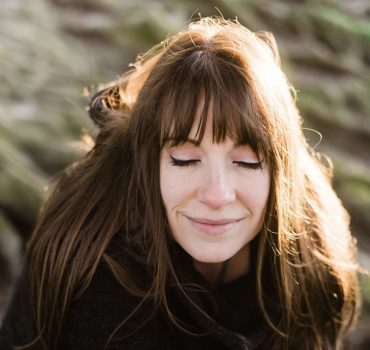HELPING B INTERVIEW WITH GENEVIEVE
Genevieve Boast is the Founder of Beyond Human Stories, its vibe and mission are a direct reflection of her own evolution and journey in life. It exists to remind us all that we have the potential to be every day hero’s. That the stories we believe about ourselves, those around us and the world in general are rarely ‘true’ and can always be rewritten. That writer and storyteller is us.
Previously she founded a social business, Emergency Happiness and prior to this spent 7 years in the corporate world, working in the fields of continuous improvement, NLP, leadership development and community investment.
Tell us about Beyond Human Stories and how you came up with the idea
I’ll start with a pivotal changing moment in my life. I went to university and studied Archaeology and pre-history, that is what I loved doing at the time and as a result I ended up getting a really good Bachelors degree. Because I did something I loved, I really invested my time and energy into it and that was a really early lesson for me around the powers that come to us when we’re really operating in the space of our passion. After I finished my degree, I realised there were very few jobs. So I ended up falling into the job of business. Working very late night shifts in a Warehouse in Sheffield. I got promoted twice in the space of one year. Suddenly I was managing a team of 17, including many who were a lot older than me and I loved it even though I found it challenging. Even though I wasn’t passionate about warehousing, what I did discover was that I’m passionate about people and inspiring people with a vision.
I was very successful in that role but I was given a very early test of character. I realised that the company I was working for had either lost or misappropriated about £1m worth of stock that belonged to my customer. This presented a very tricky position for me very early on in my career as I had formed a very good relationship with my customer at the time. I started asking questions to people about what I should do about it and I was pretty much told to shut up. So I was inherently faced with a massive issue of integrity. The company I was working for was telling me to lie and that felt very wrong and scary for me. I was compelled to tell my client but at the same time I thought oh my God, I will lose my job, they won’t give me a reference. This was my first job out of university so no one will want to hire me again as no one will want to hire a whistle blower. I chewed on this fear for about a week and I remember it being so agonising. Finally, I woke up one morning and I had clarity and I knew what I had to do. I walked into work one early morning and I locked myself into a computer cupboard and picked up the phone and called my customer and said “look, I can’t hide this from you anymore. This is what I have found. They said wow Gen, thank you for that, that is amazing. We will try to protect you.” I thought, “yeah, thanks but everybody is going to know it was me”. It all blew up. Everyone knew it was me but as they couldn’t prove it, I went through a period at work where it was very intense. I thought, at least I did the right thing so I started job hunting and I thought the one person that could give me a reference would be my customer so I rang him up one afternoon and he said “hold on one minute, someone is going to call you back in half an hour.” That someone did and he was newly appointed as the Head of Manufacturing Logistics. He said “I’m so impressed with what you did, we want to create a job for you, we want to bring you up to Scotland, we want to pay you more money and we want to call you Stock Integrity Manager.” That started my 7-year career in the media industry so I left my job and joined his company.
I ended up having a mid-crisis in my late 20s where I had been highly successful and was earning lots of money, had a car, had the house and the husband but I was desperately unhappy. I was making myself ill. I was working 70 hours a week. I went into work and said to my manager, “right that’s it, I’m not happy” and he said possibly the best line anyone has everyone has said to me. He said “great, what are you going to do about it?”
I was startled and thought he was going to tell me what to do. That was the first time someone told to me to stop being a victim and do something about it. That is when I started making brave decisions to create my story.
BeyondHuman Stories is very much a reflection of my own journey and my own life and the work I now do with people. Our mission is to act as a guide connecting individuals and organizations to their bigger purpose and human story in the world.
What do you believe to be a sustainable business model?
A lot of the work I’ve been doing is studying living systems and how does nature do this? How does the Earth do the checks and balances of itself to create life, nurture life and sustain life. When you take that into charities, you could argue, well it’s not working anymore. They’re not sustainable. I’m working with several charities at the moment and I know that it is a constant struggle, to be blunt, to operate on the donation model and grant model and it is highly competitive these days. A lot of conversations that I’m now having are what if we move to social enterprise? What will that look like for us? Does it make sense and is it the right thing to do? The first thing we need to address in the charity model is… I call it the “money is bad” story because the economy in its current form, money is very detrimental but how do we still work within that system and still do good things, still be sustainable and be responsible.
I started working with this organisation and we talked about going to a social enterprise model but at the time, we decided it wasn’t right. We felt that they weren’t ready and there were serious things we had to address but we had to address them systematically within the organisation itself first. That involved the restructure of their resources. We had to address some of the things that would get in the way of their enterprise model. They were very adamant in their belief that corporates are bad and making money in a charity is bad. So unless we were to address that first, even if we tried to push in an enterprise model, it would not have worked. So we went on a complete journey of change and cultural transformationtion with that organisation first and redefined their vision. When you’ve answered the why, you can get to the how. it is now they are starting to look at strategic partnerships and various ways to become more enterprising.
Businesses are now about storytelling. You need to share a compelling story to attract supporters. What does it take to inspire and empower someone?
When I go into a new organisation, I will spend a period of time listening and just being a part of that organisation and what I’m listening for is their current story. Where is everybody at and who is already feeling inspired and who isn’t? What are the things that are getting in the way? Who are the catalyst people? The positive catalysts are the people who are really getting it and going all out to make the organisation a success. Or the negative catalyst people who are unmotivated and unempowered because it’s those people who are very quietly telling you exactly where you need to go. The problem with these people is that others will write-them off. Actually, usually these people have something quite important to say. I try to understand what is currently happening to inspire and empower people. Do we have the desire to do something differently?
How are you focusing on gaining traction as a startup?
When I first started out, I felt very out of my comfort zone just like most entrepreneurs do and I read up on marketing and built a strategy but in hindsight, every single customer that I’ve ever had has come to me from my own network. People that knew me or people who referred them to me. I’ve never done much marketing and most of my business has come from people I have met and people I have willingly given my knowledge and expertise and passion to for free who have come back and said that is amazing, come and work for us.
Absolutly do your homework, your business modelling and canvas’ and involve as many people in that as possible but equally, in a world where there is so much competition, particularly amongst startups, people will come to you on the basis of your energy and your ability to maintain real and authentic relationships with them. My rule is to always be honest and don’t try to be something you’re not. It’s hard because you’re trying to make money and you feel insignificant until you are but try to resist the temptation of doing something that is not in line with your vision. When you’re brave to say no to something, that is when the doors open.
It’s been two years for me struggling to build my network and it’s now five years in and I’ve been able to build an environment where I can say no to potential clients. I’m very lucky because now I about 40% of my work is paid and 60% of my time is completely pro bono and for me that is completely humbling because my work is now sustainable enough that I can be giving to others who can’t afford it including charities and startups.
Is there an ideal age for entrepreneurship?
No, absolutely not! I have a friend who set up his company at age 14 and is now travelling the world as an entrepreneur. I have another colleague who left his solid career at the age of 57 and is not starting his entrepreneurial journey. I think it’s a mindset and a way of life and the prerequisite is energy and courage. We all know deep down what our gift is but the thing that separates those that make the jump and become entrepreneurs and those that don’t is courage and the will to see things through. It’s a marathon, not a sprint. It’s very rare that it happens overnight so if you’ve got that ongoing tenacity of seeing things through and accepting your vision will twist and change and evolve and end up being something completely different to what it was supposed to be, you will succeed.
What are the three top things an entrepreneur should do before starting out?
1) Be courageous and brave. You will always regret what you didn’t do, not what you do. It’s not a one-off thing, it’s a way of life
2) Everything is a lesson. We only learn when we fail in something. It’s like when you’re a child and fall over constantly and at no point do parents say “ah, you know what, he or she is just not going to be a walker”. No way. It’s not even thought of. So failure is part of it and to always have that learning mindset and to see everything as a lesson and see everyone as a potential teacher
3) Am I living my story or am I living someone else’s? The way I know that is that deep inside me, I know if I am being a people pleaser or if I’m doing something that is true to me. If you aren’t, then you won’t nearly be as successful as you will be.
Finally, any last words of advice for a young and aspiring entrepreneur
Do what you say you are going to do, walk your own road because that is what will separate you from those that will try and run away because it’s too scary. I call entrepreneurship a tough-bliss and it’s the toughest thing I’ve ever done and the most blissful thing I’ve ever done and I love that dance between he two of them



